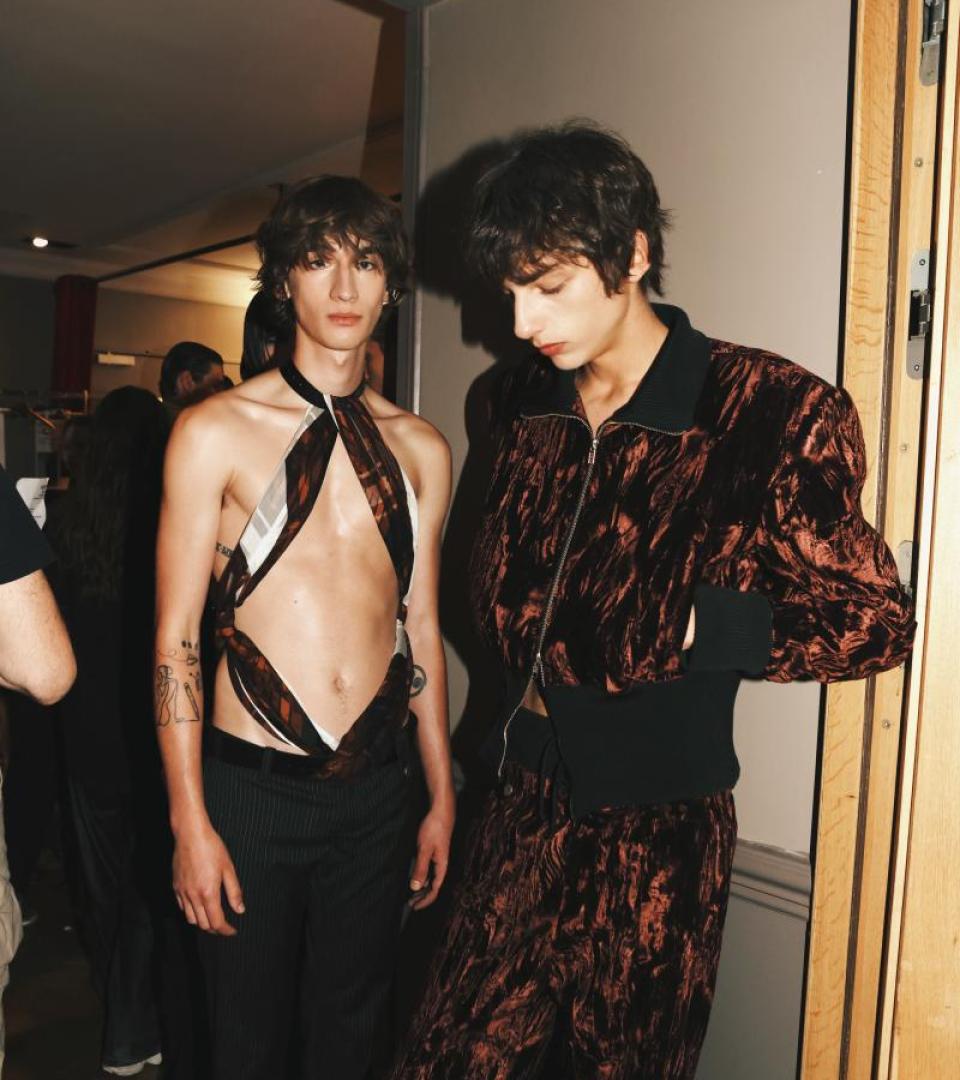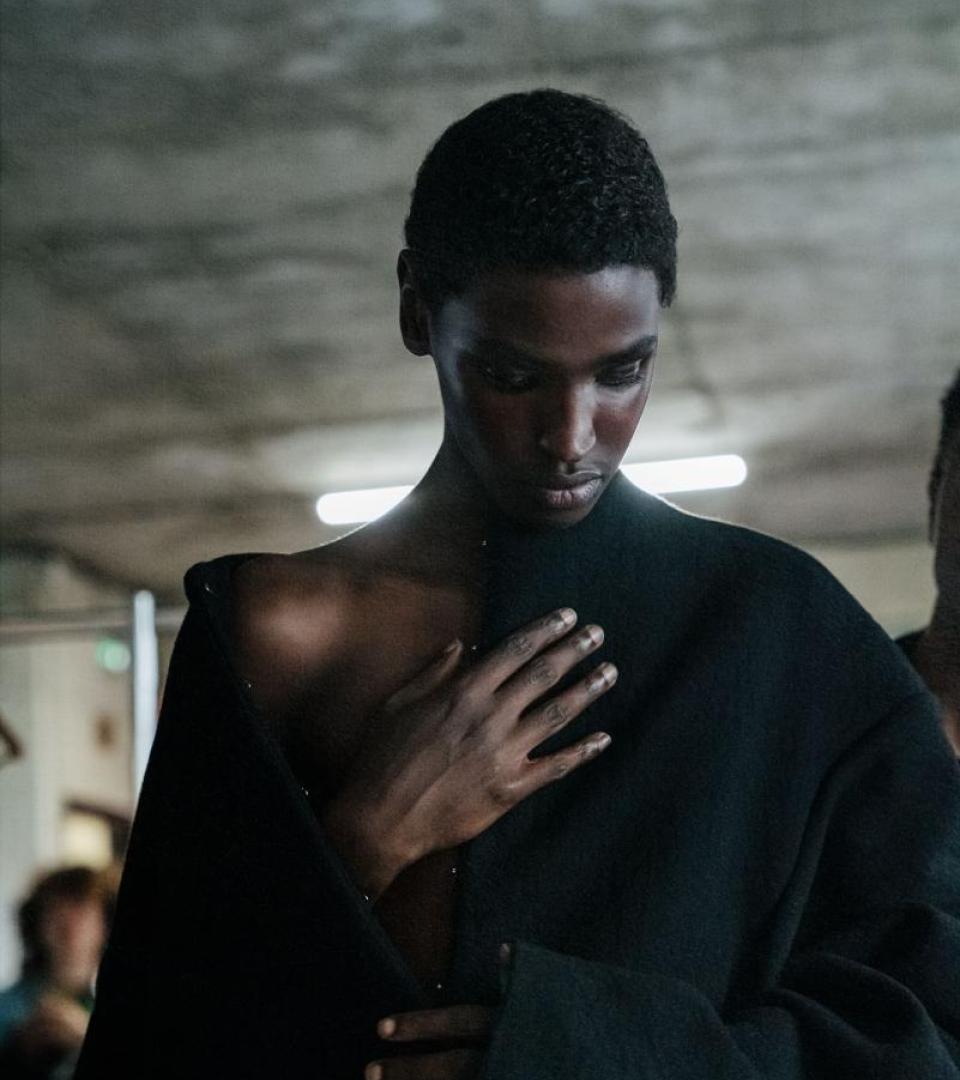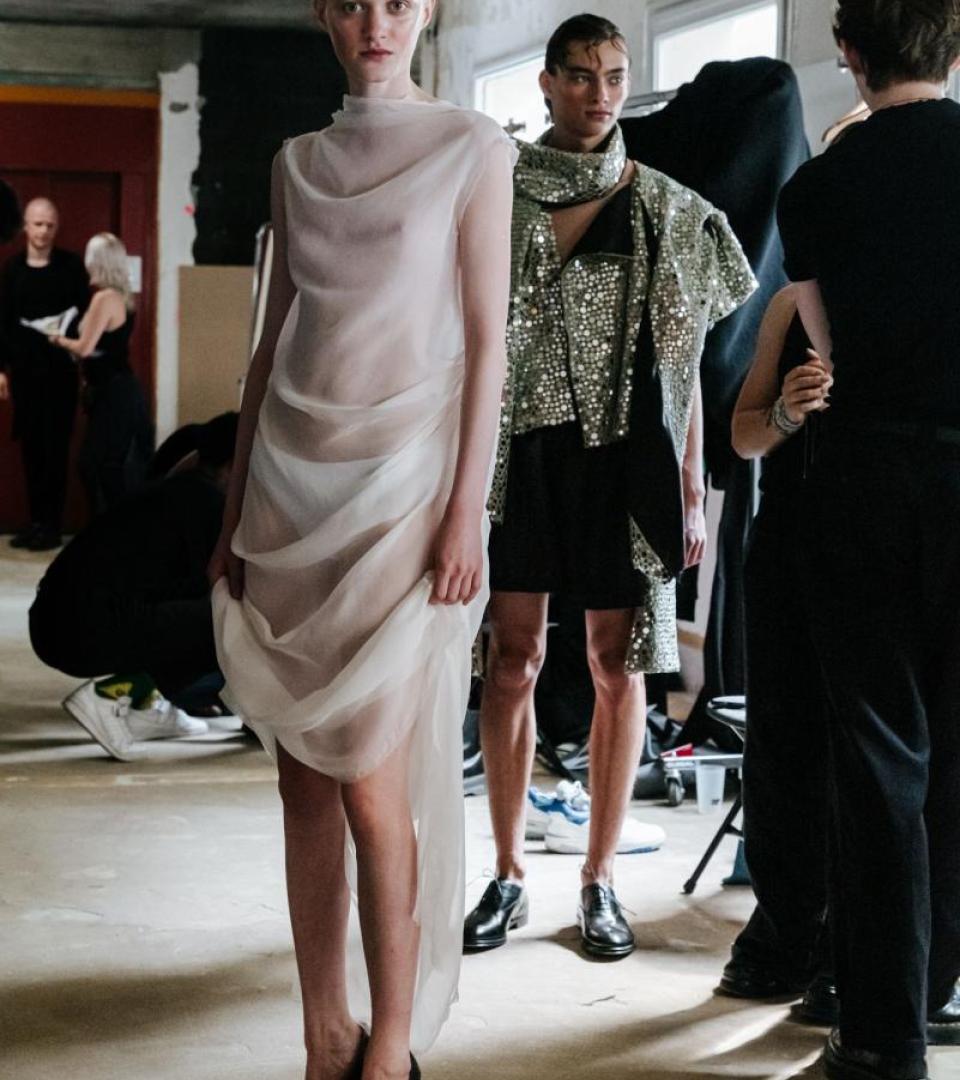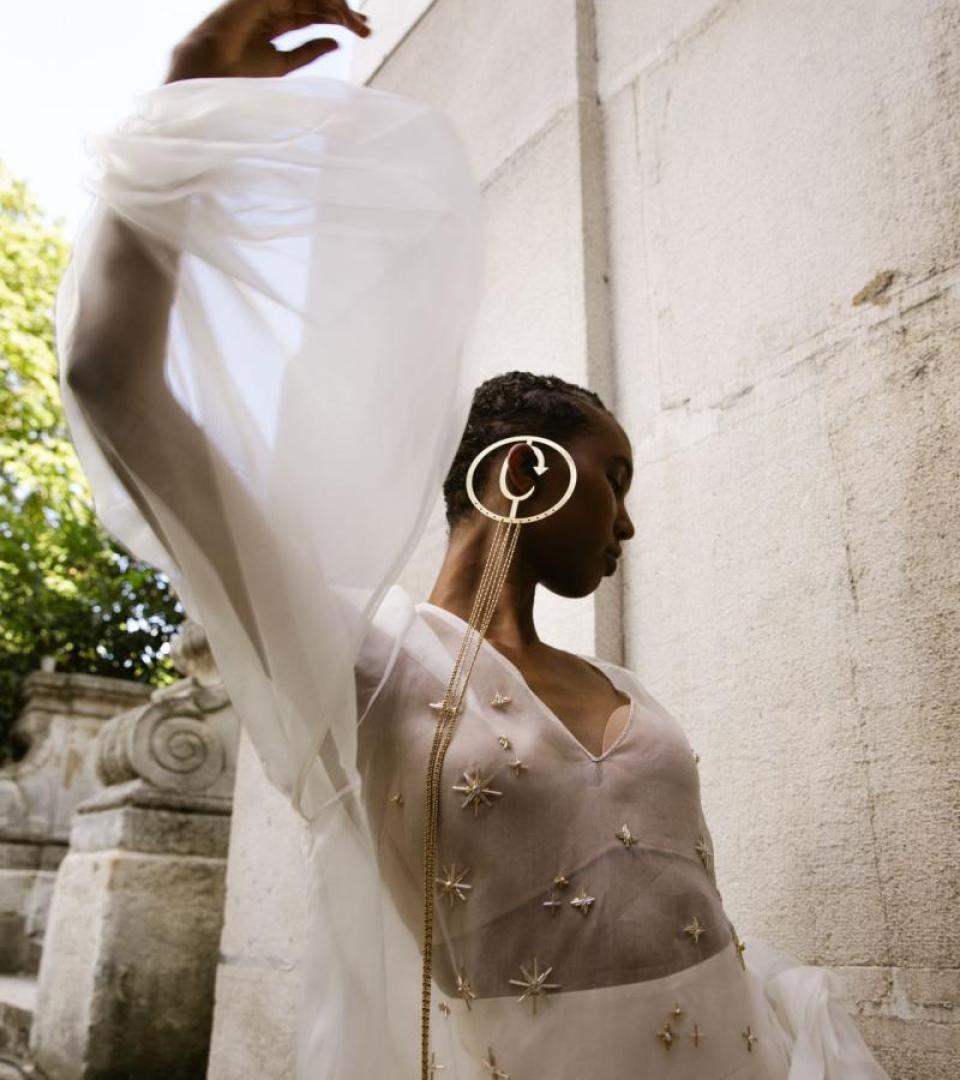What creates an emotional response for you in fashion today?
Having access to fashion archives and witnessing the revival of past designs always evokes a strong emotional response. The opportunity to bring back iconic pieces created by revered figures from the past is truly inspiring. Drawing inspiration from history holds great significance for me, as it allows me to connect with the rich heritage of fashion and appreciate the craftsmanship and artistry of bygone eras.
What are you most curious to know about how designers work, how a collection comes together?
I am fascinated by the diverse approaches that designers take in bringing a collection to life. Each designer has their unique process, and I enjoy exploring the innovative methods that transform an initial inspiration or reference into a cohesive and compelling collection. Understanding these various perspectives not only deepens my appreciation for the artistry behind their creations, but also enables me to gain insights into the meticulous craft.
In what ways are you seeing progress in fashion mirroring progress in the wider world?
While significant progress might not be apparent in mirroring wider world advancements, the realm of fashion thrives on limitless creativity. Although commercial considerations often influence decisions, the essence of fashion lies in allowing creativity to take the lead. This openness to innovation is crucial and can reflect progress within the fashion industry.
If you could change one aspect of how we experience fashion today, what would it be?
I believe that fostering a more conscious and mindful approach to fashion would greatly enhance our overall experience. In our consumer-driven society, the relentless pursuit of trends and constant accumulation often overshadows the true essence of fashion. Instead, I would advocate for prioritising quality over quantity, investing in timeless pieces, and valuing the craftsmanship and stories behind our garments. By shifting our focus from fast fashion to a more sustainable and mindful fashion culture, we can cultivate a deeper appreciation for the artistry and creativity that the industry has to offer.
What stands out as the most potentially disruptive influence on fashion in the near future?
The democratisation of fashion poses a potentially disruptive influence. The traditional exclusivity and elitism associated with the industry are being challenged. The barrier to entry is diminishing, and anyone with sales potential can now become a creative director. It will be intriguing to see the boundaries pushed by this departure from the industry's originally exclusive nature.
This interview has been lightly edited.



